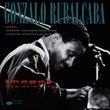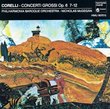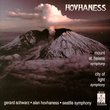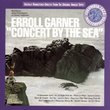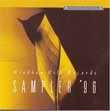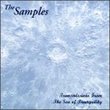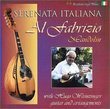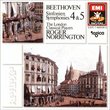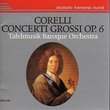| All Artists: Johannes Ockeghem, Bo Holten, Musica Ficta Title: Ockeghem: Requiem; Missa Prolationum; Intemerata Dei Mater Members Wishing: 0 Total Copies: 0 Label: Naxos Release Date: 12/9/1997 Genre: Classical Style: Opera & Classical Vocal Number of Discs: 1 SwapaCD Credits: 1 UPCs: 730099026024, 636943426029 |
Search - Johannes Ockeghem, Bo Holten, Musica Ficta :: Ockeghem: Requiem; Missa Prolationum; Intemerata Dei Mater
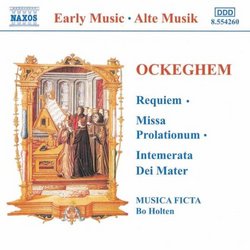 | Johannes Ockeghem, Bo Holten, Musica Ficta Ockeghem: Requiem; Missa Prolationum; Intemerata Dei Mater Genre: Classical
|
Larger Image |
CD DetailsSimilar CDs
Similarly Requested CDs
|
CD ReviewsA neglected jewel jaguar | Stockton-on-Tees, Cleveland Great Britain | 04/17/2002 (4 out of 5 stars) "As a professional composer and Ockeghem researcher I found Musica Ficta's interpretation of the Prolation Mass and Requiem to be a very intelligent one; maintaining clarity of texture (despite voice doubling) whilst feasting the ears to a banquet of exquisitely luminescent upper voices and rich full bodied lower ones. Also noteworthy is the intelligent use of 'musica ficta' (amendments to the Fazer edition source of Missa Prolationum used in the recording) and last but not least, the extremely accomplished performances - the Prolation Mass being extremely demanding for seasoned professional singers. Despite this being a budget recording, it outshines many of its competitors, including The Clerks' Group (ASV) whose slow tactus rate (tempo) drains all life out the opening Kyrie's lines. To be fair though, their Missa Mi-mi is exceptional! For those who prefer the puritanical one voice/part this disc is obviously not for you. But as a break from some of the more terse and arid vocal ensembles around who extoll this narrow minded philosophy, it is a welcome change (particularly the Credo of Missa Prolationum), one which fans of the Tallis Scholars or the Oxford Camerata would heartily enjoy." A magnificent tour de force Sator | Sydney, Australia | 08/14/2005 (5 out of 5 stars) "Johannes Ockeghem (c.1410 - 1497) was a composer who had an impact as far-reaching as any on the history of music. He was also the father of the musical form of the canon. So whether it is a canon by a modern composer, by Bach, or by Pachabel - all these are but distant ripples of the powerful impact that this man had on the history of Western music. However, of all of the surviving works - there is a sadly lost 36 part canonic motet - the Missa Prolationum is perhaps the one that demonstrates the grandiosity of his musical vision, his audacity and the genius of his mind far greater than any other. Ockeghem was the father of a period of flowering of Renaissance music that soon after him reached a peak of complexity that has never had its equal since. On his death the finest composers in Europe gathered to pay him tribute - including Josquin, La Rue, Brumel, and Compère. The Mass is a canon cycle in which different sections of the choir sing the canon simultaneously at two different tempi (prolations are the different subdivisions of the whole note) - in other words it is a double canon. The cycle progresses with each section starting with a double canon at the unison, then at the second, third and so on up a double canon at the octave. It all sounds phenomenally complex in theory but listening to the work, the results have an effortlessly fluent yet powerful expressive impact of immense wealth. The Ars Nova choir must be one of the most sorely under-recorded gems around and Naxos scored something of a coup in getting them signed up for several recordings some years back. There are a couple of other recordings available of the Missa Prolationum including those from the Clerk's Group and the Hilliard Ensemble, but this is highly competitive with both of those. Those who learned this music from the other recordings - especially that of the Hilliards - may bemoan the fact that "it just isn't the same". But thank goodness for that, for the superb Ars Nova choir under their former director Bo Holten, before Paul Hillier took over, have added insights lacking in the other two recordings. The Hilliard recording is obviously sung by a smaller all male ensemble but a mixed choir with doublings of each part gives quite a different perspective on things that are equally valid. It is a testimony to the excellence of the choir that they maintain as much textual clarity despite this. Often there is also a resultant increase in the drama and tension in the Ars Nova version such as at the opening of the Credo. The Hilliard Ensemble on the other hand definitely sound more introspective and chamber music like and this approach does yield its added benefits - and if you prefer it on this basis that is fair enough. Also, whereas there is some historical evidence that one to a part performance was the norm in Leipzig during Bach's time, the precise performance practices of Ockeghem's time are less clearly documented. There is some indirect evidence that doubling of the parts was done. Whatever the case, trying to apply practices that have some credibility in the Baroque period to Ockeghem is like trying to apply Mahlerian performance practice to Bach. As for the Requiem, the most important comparison is with the Ensemble Organum under the direction of Marcel Pérès. The all male ensemble here give a darker, more spartan impression that may be preferable in this music. Even then this is still a convincing performance of the Requiem in a coupling with the Missa Prolationum that will appeal to many. A further attraction of this recording is the superbly spacious recorded sound that the Ars Nova is blessed with. This further adds to the sense of drama and occasion in their performances. The sound is far better than on the ASV recording for the Clerk's Group, which is as always with ASV, notoriously boxy and dry. There is a natural human tendency to assume that the more expensive option must be the better quality one. Yet with Naxos you can always find incredible gems for the price of a song. The Ars Nova has also gone on to record for other labels - and I can assure you, they are terribly hard to track down and are very expensive purchases. So count your blessings that recordings from a group of this quality have been made so widely available. Highly recommended." Not a tour de force Sator | 09/11/1998 (2 out of 5 stars) "Although a solid performance for a low price, I would have to discourage listeners from taking Holten's approach as definitive. It is very difficult to approach these works (esp. the Missa Prolationum) with a larger ensemble knowing that the beauty of the work lies in its subtleties. This is very difficult to achieve with a larger group of singers, no matter how professionally they are trained. This is best accomplished by a smaller ensemble. In this case I would direct the listener to a recording of the Missa Prolationum by the Hilliard Ensemble on EMI (EMI 7497982). This is the best performance I have heard of this work. Virtually everything else is a let down. If you don't believe me, find the Hilliard Ensemble work and compare for yourself."
|

 Track Listings (12) - Disc #1
Track Listings (12) - Disc #1